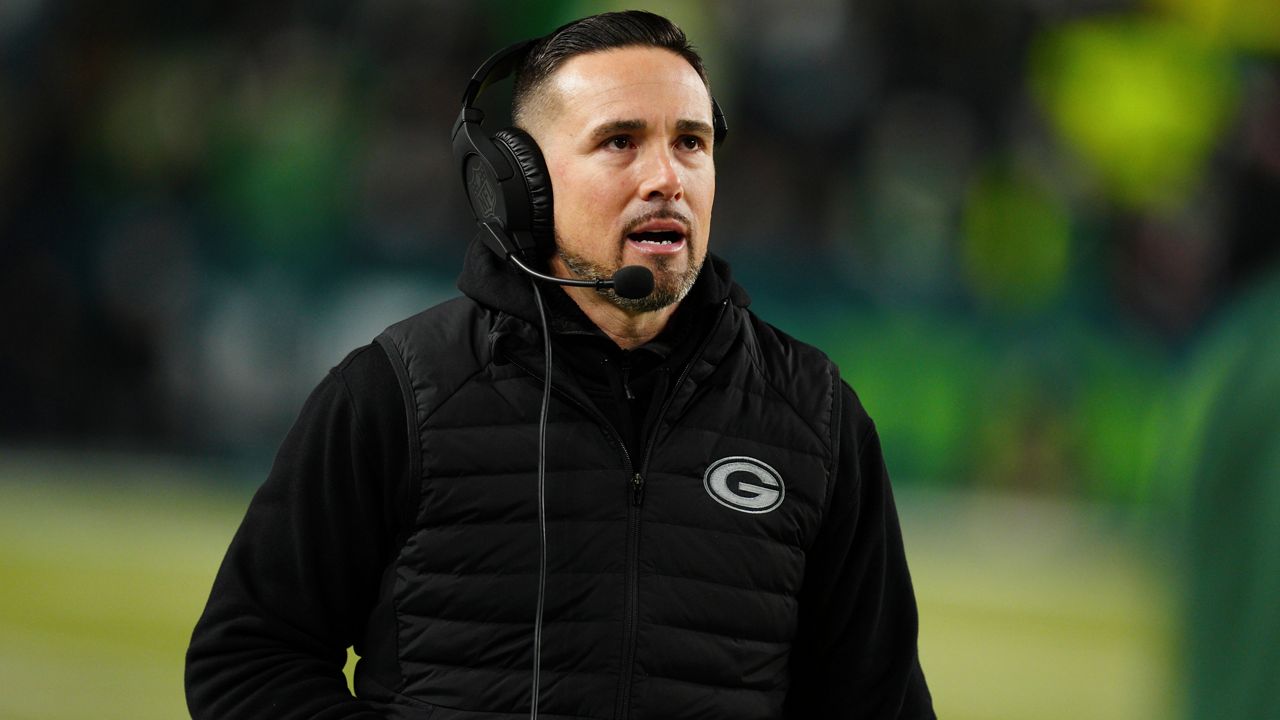Malik Willis Steps In: A Turning Point in the Packers’ 2024 Season
In Week 2 of the 2024 NFL season, Malik Willis found himself in an unexpected spotlight as the Green Bay Packers’ starting quarterback. With Jordan Love sidelined by a knee injury sustained in Brazil, Willis was thrust into a high-pressure situation against the Indianapolis Colts. The game took a dramatic turn when the Packers regained possession with just 100 seconds remaining.
Instead of leaning on Willis to execute a game-winning drive, head coach Matt LaFleur opted for a conservative strategy. Running back Josh Jacobs carried the ball three times, securing a first down but allowing the clock to expire. When questioned post-game, LaFleur defended the approach:
“Some would call it conservative,” LaFleur remarked. “I would call it smart.”
A Conservative Shift in LaFleur’s Coaching Style
While the decision made sense in the moment, it marked the beginning of a pattern for LaFleur in 2024—a season characterized by uncharacteristically cautious play-calling and decision-making. This departure from his typically aggressive style was evident in both fourth-down calls and offensive strategies.
Fourth-Down Decisions: A Statistical Decline
Analytics expert Ben Baldwin tracks coaches’ tendencies to go for it on fourth down when it improves win probability by at least 1.5%. In 2023, the Packers ranked eighth, just behind the Detroit Lions. By 2024, however, they had dropped to 31st, with only the Baltimore Ravens trailing them.
Interestingly, the Lions surged to first in aggressiveness, highlighting a stark contrast in coaching philosophies. Even with an improved defense under Jeff Hafley and the mid-season addition of reliable kicker Brandon McManus, LaFleur leaned heavily on conservative calls.

Offense: A Run-Centric Identity
LaFleur’s tendency toward the run game became even more pronounced in 2024. Historically, his teams have maintained a balanced approach, with pass rates between 56% and 60% since he took over in 2019. However, this season saw the Packers’ pass rate plummet to 49.31%, ranking 30th in the league. It was the first time since 2003 that the Packers ran the ball more than they passed.
The Role of Josh Jacobs and Scheme Adjustments
A significant factor in this shift was the presence of star running back Josh Jacobs, acquired in free agency. While Jacobs’ performance bolstered the ground game, the offense struggled to marry run and pass concepts as effectively as in previous years. LaFleur acknowledged the challenges during his end-of-season review:
“We ran the ball more out of the gun this year. The efficiency was night and day better compared to under center,” LaFleur explained. “That’s why we adjusted. Football evolves, and I’m not saying we won’t get back to our hard run-sell play action.”
Even with Jordan Love back under center for most of the season, his passing attempts decreased significantly—from an average of 34 per game in 2023 to just 28 in 2024.

What’s Next for Matt LaFleur?
Matt LaFleur has built a reputation as a young and innovative head coach, but the 2024 season tested his adaptability and willingness to take risks. While this conservative approach may have been a temporary adjustment, the upcoming 2025 season will be pivotal in determining whether it was an anomaly or the start of a new era in Packers football.
With a solid defense, a dynamic run game, and the potential for Jordan Love to rebound, LaFleur has the tools to restore balance to the team’s offense. The question remains: will he return to his aggressive roots, or will caution continue to define his strategy moving forward?
One thing is certain—2025 is shaping up to be a defining year for LaFleur and the Green Bay Packers.






